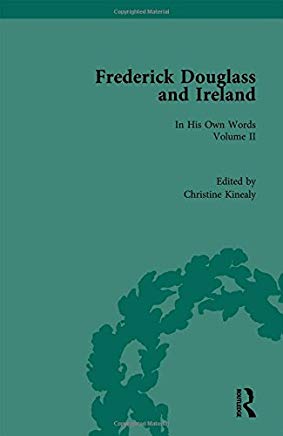2018 School Spending Survey Report
Frederick Douglass and Ireland: In His Own Words. Vol. 2
.
ISBN 9781138495494. $150; ebk. ISBN 9780429960857.
ea. vol: Routledge. 2018. 355p. ed. by Christine Kinealy. notes. bibliog. index. REF
COPY ISBN
VERDICT As the bibliography of transatlantic studies continues to develop, this work will be of immediate interest and lasting scholastic consequence to educators and students in 19th-century world history courses from high school to the university.
RELATED
ALREADY A SUBSCRIBER? LOG IN
We are currently offering this content for free. Sign up now to activate your personal profile, where you can save articles for future viewing




Comment Policy:
Comment should not be empty !!!